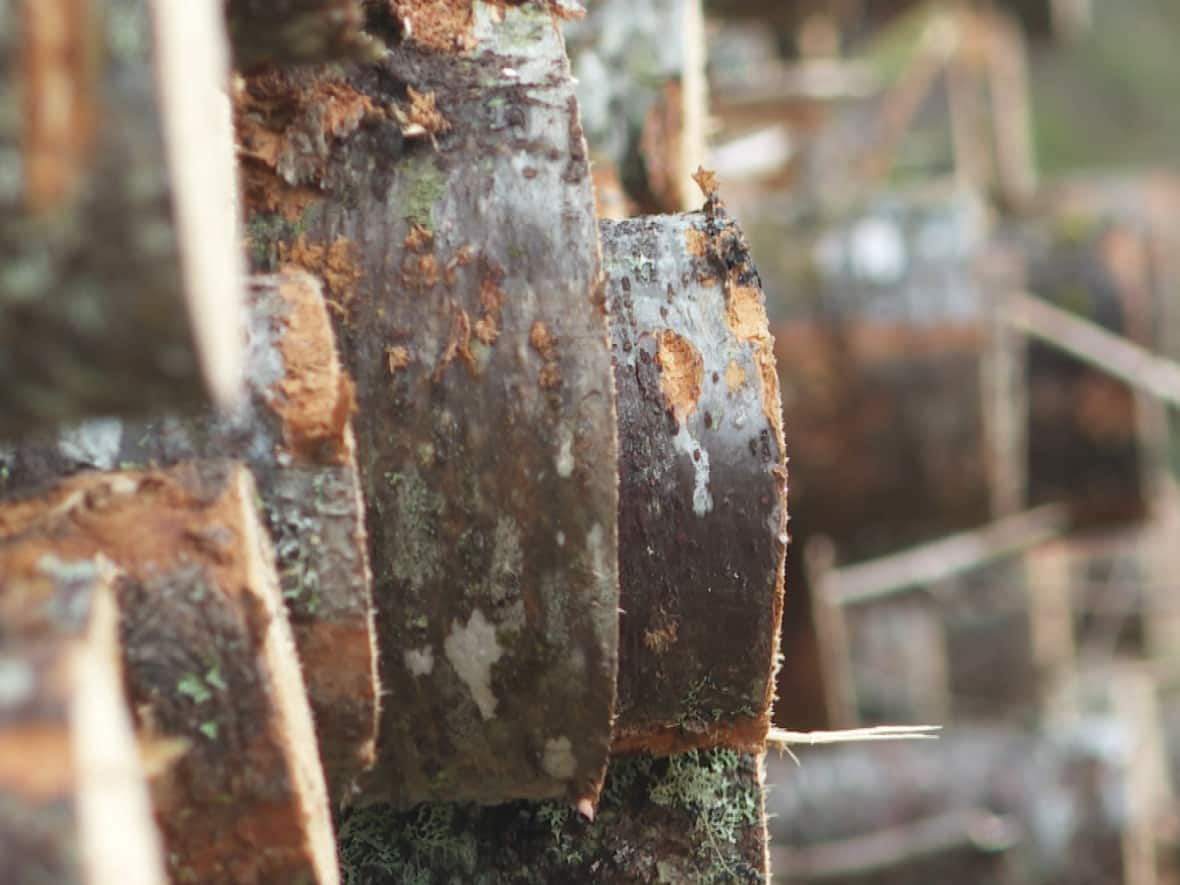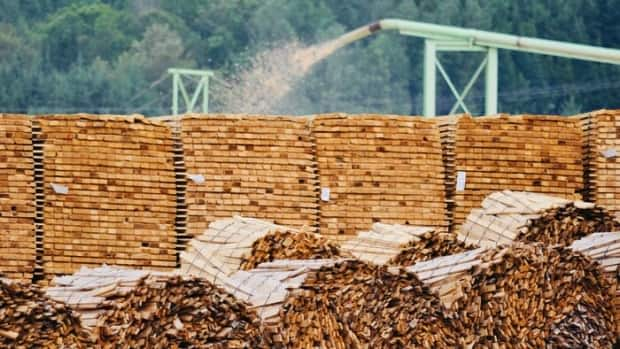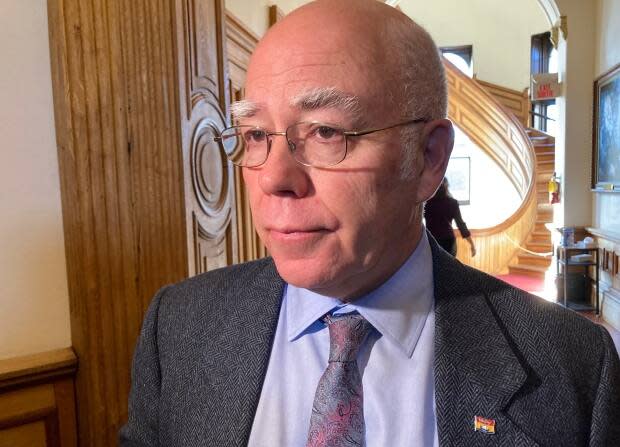Deep cuts in New Brunswick timber royalties were 'a bit surprising,' top logging executive says

The head of one of New Brunswick's largest logging companies says he is puzzled at deep and retroactive discounts the province is proposing to make in its timber royalty charges to mill owners, eight months after raising them.
"It was a bit surprising to us," said Adam Sheparski. "It doesn't appear to align with the markets we are experiencing."
Sheparski is president of Edmundston-based Acadian Timber, New Brunswick's second-largest private landowner and a major supplier of wood to New Brunswick lumber and pulp mills.
During a conference call with stock analysts last week to discuss Acadian's first quarter results, he was asked whether plans New Brunswick has to lower what it charges mill owners to supply themselves with publicly owned trees would undermine prices Acadian will be able to charge for its trees.

Sheparski said he doesn't understand what the province is doing, but felt the effect on his company would be minimal in the short term.
"I know that's hard to believe, given the rates," Sheparski told analysts.
He cited access to out-of-province markets and some contractual price protections on in-province sales as two reasons Acadian might be able to weather price cutting by the province, at least temporarily.
"In the long run we'll keep an eye on it." he said.
Earlier this month, New Brunswick posted a list of royalties it is proposing to charge forest companies for wood they cut on Crown land in 2023. The prices are retroactive to April 1 and include major reductions on some of the province's most prized timber.
The royalty on spruce, pine and fir studwood, which is cut by mills into two-by-four lumber, is to be lowered from its current rate of $33.58 per cubic metre to $18.40. That's a $30-million royalty reduction on the 2 million cubic metres of studwood that companies take from Crown land annually.
Softwood sawlogs, which are larger and more valuable, are facing a proposed royalty reduction of $18.77 per cubic metre, a discount of up to $19 million this year from current rates, depending on annual harvested volumes.

There were offsetting royalty increases on some hardwoods, but not nearly as significant as the reductions representatives of New Brunswick's private wood suppliers openly worried could trigger pricing troubles for them.
"I really couldn't believe that it dropped that much," Linda Bell, the general manager of the Carleton Victoria Wood Producers Association in Florenceville, said last week.
"The more cheap wood that the mills have from Crown, the less incentive they have to buy our wood."
The Department of Natural Resources and Energy Development did not respond to questions from CBC News last week about the changes, but has publicly said the posted royalty rates are incomplete and will be added to later.
According to the department, there are plans to supplement royalties with special charges to fund a new "private woodlot sustainability fund."
Extra royalty rates connected to the fund have not been disclosed, but last November, Natural Resources Minister Mike Holland told MLAs the "goal" is to raise $10 million a year from industry through the new charges.

It's well below the $40 million to $50 million in timber royalty discounts the same industry players are also set to receive this year.
The fund, and special royalty rates to finance it, were both meant to be in place by April 1, but the department missed that deadline. Currently, neither has yet been established.
In an email Thursday, the department said it is still working on the details.
"The regulation for the Private Woodlot Sustainability Act is being drafted by government drafters, and will be posted for comment upon their completion," wrote spokesperson Nick Brown.
In the Legislature Thursday, Green Party Leader David Coon criticized the reductions in timber royalties as a give away to "billionaires." In an interview later, he said the delay in setting up the sustainability fund makes him question whether it is coming at all.
"I'm guessing we may never see those private wood-sustainability funds show up," said Coon.

In New Brunswick, royalties are meant to reflect the "fair market value of standing timber" and are determined by an annual survey of what private land owners were paid for their standing trees by mills or independent logging contractors in the prior year.
In his conference call, Sheparski suggested Acadian Timber has detected no major decline in those values that would have triggered a major reduction in government royalty charges.
"We are in the process of understanding the methodology and the result of the survey," said Sheparski.
There's sort of a disconnect in what we're seeing in the markets and what came out of their survey."


